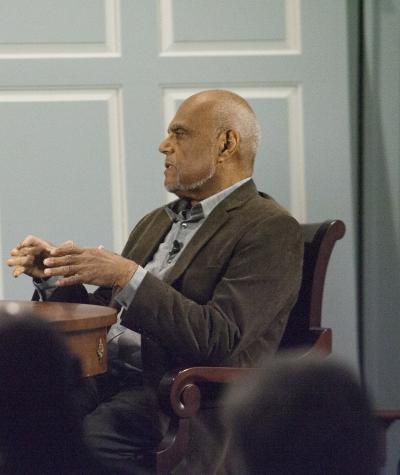It is with much sadness that Campaign Legal Center (CLC) mourns the loss of Bob Moses, a civil rights hero and educator who registered thousands of Black voters and used a grassroots approach to organize and the build the political will to sign the 1965 Voting Rights Act into law, which helped ensure equal access to the ballot for all Americans.
Born and raised in New York City, education was part of Moses’ life from the very beginning. After attending the Stuyvesant High School for gifted students, he won a scholarship to Hamilton College in 1952, where he majored in philosophy with honors, and went on to earn a M.A. in philosophy from Harvard University in 1957. He became active in the civil rights movement in the late 1950s while teaching high school math to students in the Bronx after seeing Black people picketing and sitting at lunch counters across the South on television and moved to Mississippi to take on a more active role in 1960. Civil rights veterans Bayard Rustin and Ella Baker mentored Moses, who joined the Student Nonviolent Coordinating Committee (SNCC). He began to channel his passion for teaching into helping thousands of Black residents of rural Mississippi register to vote and pass stringent voter literacy tests and trained grassroots organizers at freedom schools.
Soft-spoken but unflappable, Moses quickly developed a reputation for calmly leading people to complete their registration, even in the face of violence. Much like other famous civil rights icons like Martin Luther King Jr. or former Rep. John Lewis, Moses was jailed and beaten for his efforts to allow Black Mississippians to gain access to the franchise. His work to establish the 1964 Summer Freedom School brought white college students from the North to assist with his voter registration drives, generated publicity and put pressure on Congress to pass legislation that would protect Black voting rights, creating an environment in which the landmark Voting Rights Act could be enacted a year later.
In the middle to latter half of the 1960s, Moses would switch from having the civil rights movement be the primary outlet for his activism to the Vietnam War. However, no matter where he went later in life, Moses drew upon his experiences in the civil rights movement to ensure that all Americans had equal access to key opportunities. In 1982, Moses became frustrated at the lack of advanced mathematics coursework available when his eldest child began eighth grade, prompting him to start “Project Algebra” to promote math literacy among lower income students and students of color. According to The Washington Post, he claimed that “Math literacy is a civil right. Just as Black people in Mississippi saw the vote as a tool to elevate them into the first class politically, math is the tool to elevate the young into the first class economically.”
CLC is working to honor Moses’ legacy by fighting ensuring that Americans have the opportunity to register to vote and protecting their freedom to vote. This includes pushing to restore the right to vote for those with felony convictions on their records, combatting the scourge of anti-voter laws recently enacted at the state level, and advocating for Congress to pass the For the People Act and the John Lewis Voting Rights Advancement Act to put in place baseline national standards for voting rights protections. There is still much that needs to be done to make the promise of democracy real for us all and ensure that we can all have an equal say in our future.
